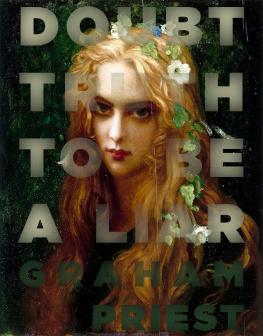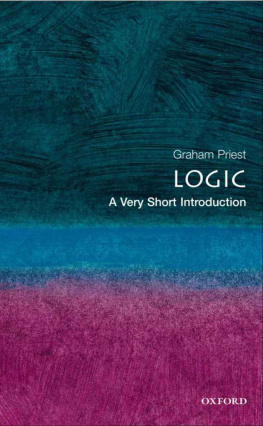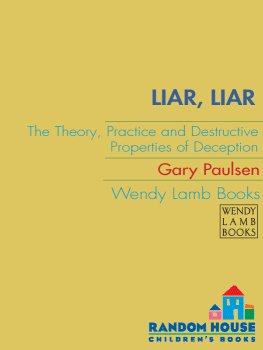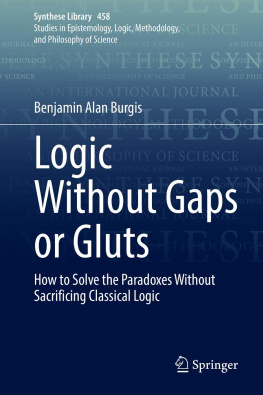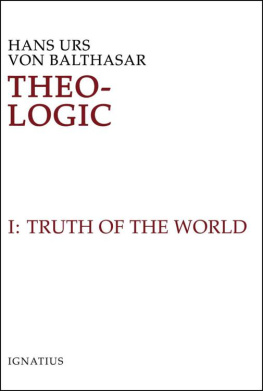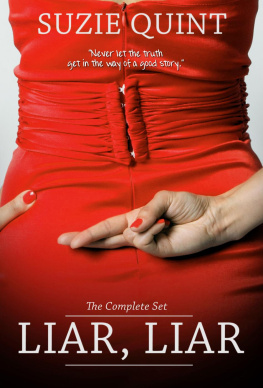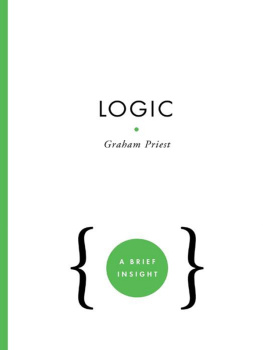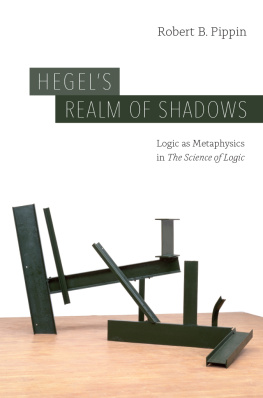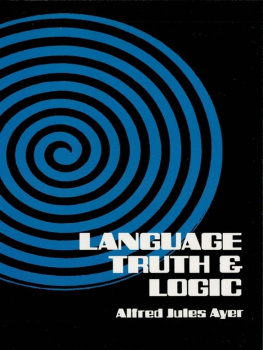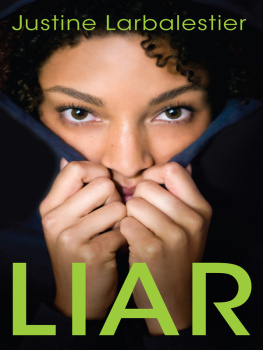DOUBT TRUTH TO BE A LIAR
The Law of Non-Contradiction has been high orthodoxy in Western philosophy since Aristotle. The so-called Law has been the subject of radical challenge in recent years by dialetheism, the view that some contradictions are indeed true. Many philosophers have taken the Law to be central to many of our most important philosophical concepts. In Doubt Truth to be a Liar, Graham Priest mounts the case against this. Starting with an analysis of Aristotle on the Law, he discusses the nature of truth, of rationality, of negation, and of logic itself, and argues that the Law is inessential to all of these things. The book takes off from Priest's earlier book, In Contradiction (a second edition of which is also published by OUP), developing its themes largely without recourse to formal logic.
The book is required reading for anyone who wishes to understand dialetheism; (especially) for anyone who wishes to continue to endorse the old Aristotelian orthodoxy; and more generally, for anyone who wishes to understand the role that contradiction plays in our thinking.
Graham Priest is Boyce Gibson Professor of Philosophy at the University of Melbourne, and Arche Professorial Fellow at the University of St. Andrews.
Doubt Truth to be a Liar
GRAHAM PRIEST







Doubt thou the stars are fire; Doubt that the sun cloth move; Doubt truth to be a liar; But never doubt I love.
(Hamlet, . ii. 115)
For Minou
Preface
In Contradiction, which was first published in 1987, provided a sustained argument for and defence of dialetheism. My thoughts on the topic have continued to evolve since that time, however. A general discussion of the evolution can be found in the second edition of that book, which is a companion volume to this one. One particular area of development concerns the implications of dialetheism for certain key philosophical notions, such as truth and rationality-and vice versa. That is what this book is about.
The book draws on papers that I have published since 1987. In particular, it draws on the following material, which, however, has been refashioned in some places-at some points substantially-in the cause of coherence:
Chapter 1: `To Be and Not to Be-that is the Answer: Aristotle on the Law of Non-Contradiction', Philosophiegeschichte and Logische Analyse, 10 998), 91-130.
Chapter 2: `Truth and Contradiction', Philosophical Quarterly, 50 (2000), 189-95.
Chapter 3: `Perceiving Contradictions', Australasian Journal of Philosophy, 77 (1999), 439-46; and `Could Everything be True?', Australasian Journal ofPhilo- sophy, 78 (2000), 189-95.
Chapter 4: `What Not? A Defence of a Dialetheic Account of Negation', in D. Gabbay and H. Wansing, (eds.) (1999), What is Negation?, Dordrecht: Kluwer Academic Publishers, 101-20.
Chapter 5: `Boolean Negation and All That', Journal of Philosophical Logic, 19 (1990), 201-15.
Chapter 6: `Can Contradictions be True? IF, Proceedings oftheAristotelian Society, suppl. vol. 67 (1993), 35-54; and `Rational Dilemmas', Analysis, 62 (2002), 11-16.
Chapter 7: `Why it's Irrational to Believe in Consistency', in B. Brogard and B. Smith (eds.), Rationality and Irrationality Proceedings of the 23rd International Wittgenstein Symposium, Vienna: obv&hpt Verlagsgesellschaft mbh & Co. (2001), 284-93.
Chapter 8: 'Paraconsistent Belief Revision', Theoria, 68 (2001), 214-28.
Chapter 9: `Inconsistency and the Empirical Sciences', in J. Meheus (ed.) (2002), Inconsistency in Science, Dordrecht: Kluwer Academic Publishers, 119-28.
Chapter 10: `On Alternative Geometries, Arithmetics and Logics: A Tribute to Lukasiewicz', Studia Logica, 74 (2003), 441-68.
Chapter 11: `Validity', in A. Varzi (ed.) (1999), The Nature of Logic, Stanford: CSLI Publications (European Review of Philosophy), 183-206.
Chapter 12: `Logic: One or Many?', in J. Woods and B. Brown (eds.), Logical Consequences: RivalApproaches, Oxford: Hermes Scientific Publishers Ltd. (2001), 23-38.
I am grateful to the editors, professional associations, and publishers in question for permission to reuse the material.
Footnotes in those papers thanked all those whose constructive criticism helped in their production. These included by name: Jonathan Adler, Diderik Batens, JC Beall, Paddy Blanchette, Andrew Brennan, Deb Brown, Stewart Candlish, Max Cresswell, Nick Denyer, Andre Fuhrmann, Andre Gallois, Jay Garfield, Len Goddard, Bill Grey, Ian Hinckfuss, Colin Howson, Dominic Hyde, Arnie Koslow, Roger Lamb, Julian Lamont, Isaac Levi, David McCarty, Gary Malinas, Joke Meheus, Winston Nesbitt, Daniel Nolan, Thomas de Praetere, Greg Restall (several times), Hans Rott, Steve Schiffer, Hartley Slater, Timothy Smiley, Roy Sorensen, Goran Sundholm, Richard Sylvan, Koji Tanaka, Ellen Watson, Peter Woodruff, Peter Unger, Achille Varzi, and Byeong Yi.
A version of the whole book was given in a series of Arche seminars in the Department of Logic and Metaphysics, University of St Andrews, Candlemas term, 2004. I am grateful to all the people who provided helpful comments and criticisms there, too; and especially to Ross Cameron, Roy Cook, Neil Cooper, Hud Hudson, Daniel Nolan, Agustin Rayo, Stephen Read, John Scorupski, Stewart Shapiro, Robbie Williams, Crispin Wright, Elia Zardini. Collective thanks go to Arch6 and the University of St Andrews for the congenial atmosphere they provide, to the University of Melbourne for their graciousness in allowing me to take periods of research leave there, and to my colleagues at the University of Melbourne for their never-failing support and stimulation. Finally, my thanks go to the staff of Oxford University Press, particularly Peter Momtchiloff for his thoughtful guidance with the book, and to Peter Milne, who read the penultimate draft of the book for the Press, and gave detailed and perceptive comments which much improved the final product.
GP
Melbourne
2005
Contents
PART I: TRUTH
PART II: NEGATION
PART III: RATIONALITY
PART IV: LOGIC
Introduction
Dialetheism is what this book is about.
gives a number of reasons for supposing it to be so. These concern the paradoxes of selfreference, motion and change, and the conflict of norms, particularly legal norms. Doubtless there are other reasons. But that is not what this book is about.
discusses that situation. This book is not about that either.
(Some knowledge of formal logic is certainly required to read parts of the book; but I have deliberately omitted from it any heavy-duty logic.)
Hence, rationality is also intimately connected with dialetheism. The third part of the book is about this. For Aristotle, the "Law of Non-Contradiction" was a principle of metaphysics, not logic. Since at least Leibniz, however, it has been taken to be a logical principle, indeed a central such principle. Dialetheism now, therefore, bears on the nature of logic. The final part of the book concerns this. The contents of each part of the book, in more detail, are as follows.

